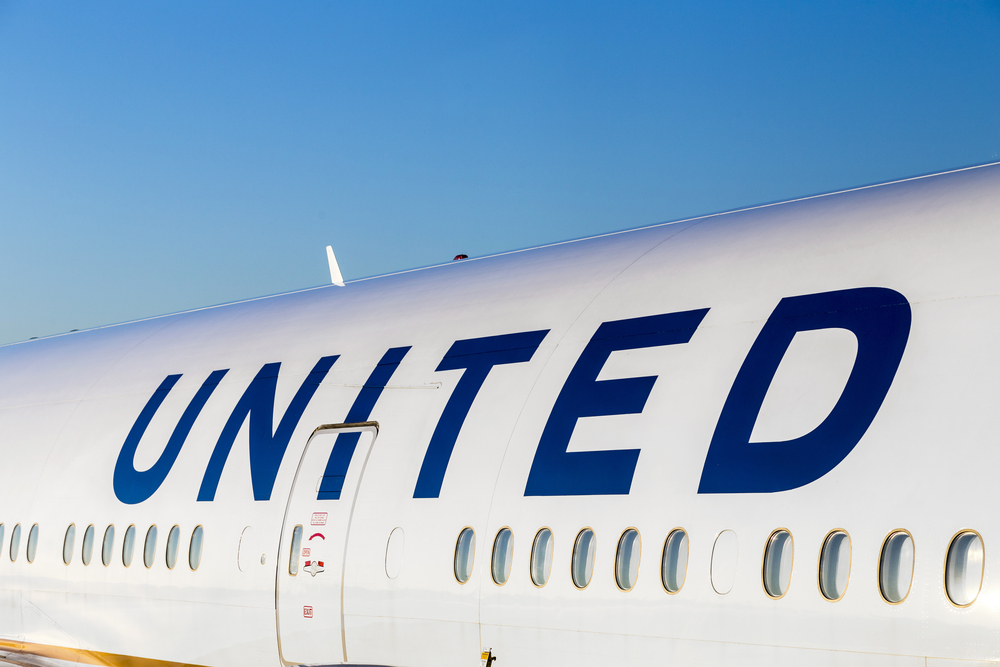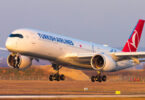The Department of Transportation has issued their ruling regarding the super cheap United first class tickets across the pond from London. They have said that they are not going to make United honor the mistake and that pretty much brings the whole little episode to an end…except for a couple of things about how they said it.
Recap of the United Fare Issue
To recap, about 12 days ago, United had a misfiled currency conversion with the Danish Krone and anyone starting their search from London to the US using the Danish version of United.com were seeing incredibly cheap premium cabin tickets. I mean, insanely cheap. Some people were purchasing business class tickets for around $50 – which does not even come close to covering the taxes and fees for departing from London. In the space of a few hours, thousands of these tickets were sold.
United moved quickly and canceled the tickets which triggered a massive filing of complaints with the DOT which covers these issues. At issue was a ruling that the DOT had put into affect basically stating that it was not possible for airlines to increase the fare price after tickets were issued and payment was taken. Pretty much the lone stipulation in the provision was that the ticket had to begin or end in the US or have a US connection of over 24 hours for the DOT to act on it.
DOT Says “No” To Super Cheap United Premium Fares
That brings us to today and the DOT has said NO to customers wanting United to honor the fares. It is not too big of a surprise because of the way the whole thing unfolded (customers changing the country of the website to Denmark – though not illegal and perfectly permissive for EU residents) and considering what United had at stake. While many people may not think it too big of a deal to have people fly in seats that may go out empty or with United employees in them anyway, it really was much bigger than that. While many people did book United flights, there were many others that booked with other United partners – partners like Lufthansa and in First Class. That is far from a cheap ticket and it would not have been just a little bit of change for United to pay on that.
Of course there are many people that are angry with the way it ended but I am guessing there are many more people that are happy with the resolution as it really was in the spirit of the DOT provision that was originally crafted. The problem I have is with some of the language in the DOT statement (bolding mine):
The U.S. Department of Transportation’s Office of Aviation Enforcement and Proceedings (Enforcement Office) has completed its review of the mistaken fares that appeared on United Airlines’ (United) Denmark website on February 11, 2015. During the past two weeks, thousands of consumers who purchased tickets from United’s Denmark website at the mistaken fare levels have contacted the Enforcement Office asking that United be required to honor those fares based on the Department’s rule against post-purchase price increases of scheduled air transportation.
After a careful review of the matter, including the thousands of submissions from consumers and information from United, the Enforcement Office has decided that it will not take action against United for not honoring the tickets. The mistaken fares appeared on a website that was not marketed to consumers in the United States. In order to purchase a ticket, individuals had to go to United’s Denmark website which had fares listed in Danish Krone throughout the purchasing process. In addition, only people who identified “Denmark” as their location/country where billing statements are received when entering billing information at the completion of the purchase process were able to complete their purchase at the mistaken fare levels. Consistent with the Office’s treatment of fare advertisements and disclosure of baggage fees, it does not intend to enforce the rule in question (the post-purchase price increase prohibition) when the fare offer is not marketed to consumers in the United States. Additionally, the Office is concerned that to obtain the fare, some purchasers had to manipulate the search process on the website in order to force the conversion error to Danish Krone by misrepresenting their billing address country as Denmark when, in fact, Denmark was not their billing address country. This evidence of bad faith by the large majority of purchasers contributed to the Enforcement Office’s decision.
To ensure that the Office’s determination that United is not required to honor the mistaken fare is available to all affected consumers expeditiously, the Office is placing this notice on its website rather than responding separately to each individual who has contacted the Department. The Office has also agreed that United may choose to post information about its handling of this incident in a prominent location on its website instead of providing individual responses to consumers who submitted an inquiry to United or the Department regarding this matter. We believe that posting of information by the Department and United is the best course of action as it offers the most effective means of reaching as many consumers as possible at the same time.
The Disturbing Language
The bold parts are the parts that I am not happy with. That is because it seems that the DOT is moving to take a position that mistake fares that are only marketed to US customers will be cases they will handle. First of all, “mistake fares” are never marketed to people intentionally anyway – that is what makes them mistake fares. Second, one of the biggest mistake fares from last year involved the website for Norwegian airline Wideroe and was for United-operated flights. In that case, those tickets were honored and people flew them, but does the language in this decision mean that such mistakes in the future will not be ruled in the customer’s favor?
A few years ago, I got in on a deal of sorts that was going on that involved travel booked originating in Myanmar. For about $200, I had a ticket on Singapore Airlines in their Suites class from Singapore to London (with feeder flights in business and the ending flight in coach). It was honored and I would have flown it but something came up so I had to cancel it (that HURT!). But, if that mistake were to occur now, even though the ticketing was done by American OTAs, it would seem that it would not qualify since it was not marketed to US consumers. Of course, I could be wrong on that but I hope this language does not indicate a switch to a refining of the rules. I think they are currently working the way they were designed to, including on this ruling.
What do you think? Were you happy or upset with the DOT’s ruling on these mistake tickets?









As someone who had 7 of these booked, I’m disappointed. But I understand the DOT keeping the spirit of the rule while not honor this. That being said I completley agree with you on the language in the ruling regarding “marketed to US consumers”. Since previously it was to all flights whos origin/destination was in the US. Disturbuing!
Well, as a EU customer, I’m definitely gonna look at non US airlines from now on to travel to the states, not only do they offer incomparably better hard and soft product, they also don’t have friends at the DoT rooting for them fixing their mistakes. Who’s to say regular fares US airlines don’t end up liking aren’t next. Very poor wording on the part of DoT.
“First of all, “mistake fares” are never marketed to people intentionally anyway”.
Not so – from a legal perspective you’re mixing up two types of mistakes. Mistake fares are intentionally marketed. They act of marketing it is intentionally and it’s the content of what they’re marketing that was a mistake. This was a situation where the marketing itself should not have been to US customers. It’s a subtle difference but it’s a very well settled legal distinction. You can still not agree with the decision but your statement does not legally follow.
Thanks for the correction!